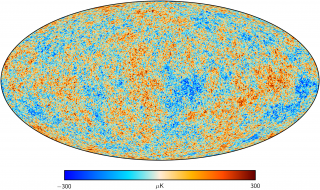Bibcode
Shimwell, T. W.; Tasse, C.; Hardcastle, M. J.; Mechev, A. P.; Williams, W. L.; Best, P. N.; Röttgering, H. J. A.; Callingham, J. R.; Dijkema, T. J.; de Gasperin, F.; Hoang, D. N.; Hugo, B.; Mirmont, M.; Oonk, J. B. R.; Prandoni, I.; Rafferty, D.; Sabater, J.; Smirnov, O.; van Weeren, R. J.; White, G. J.; Atemkeng, M.; Bester, L.; Bonnassieux, E.; Brüggen, M.; Brunetti, G.; Chyży, K. T.; Cochrane, R.; Conway, J. E.; Croston, J. H.; Danezi, A.; Duncan, K.; Haverkorn, M.; Heald, G. H.; Iacobelli, M.; Intema, H. T.; Jackson, N.; Jamrozy, M.; Jarvis, M. J.; Lakhoo, R.; Mevius, M.; Miley, G. K.; Morabito, L.; Morganti, R.; Nisbet, D.; Orrú, E.; Perkins, S.; Pizzo, R. F.; Schrijvers, C.; Smith, D. J. B.; Vermeulen, R.; Wise, M. W.; Alegre, L.; Bacon, D. J.; van Bemmel, I. M.; Beswick, R. J.; Bonafede, A.; Botteon, A.; Bourke, S.; Brienza, M.; Calistro Rivera, G.; Cassano, R.; Clarke, A. O.; Conselice, C. J.; Dettmar, R. J.; Drabent, A.; Dumba, C.; Emig, K. L.; Enßlin, T. A.; Ferrari, C.; Garrett, M. A.; Génova-Santos, R. T.; Goyal, A.; Gürkan, G.; Hale, C.; Harwood, J. J.; Heesen, V.; Hoeft, M.; Horellou, C.; Jackson, C.; Kokotanekov, G.; Kondapally, R.; Kunert-Bajraszewska, M.; Mahatma, V.; Mahony, E. K.; Mandal, S.; McKean, J. P.; Merloni, A.; Mingo, B.; Miskolczi, A.; Mooney, S.; Nikiel-Wroczyński, B.; O'Sullivan, S. P.; Quinn, J.; Reich, W.; Roskowiński, C.; Rowlinson, A.; Savini, F.; Saxena, A.; Schwarz, D. J.; Shulevski, A. et al.
Referencia bibliográfica
Astronomy and Astrophysics, Volume 622, id.A1, 21 pp.
Fecha de publicación:
2
2019
Revista
Número de citas
551
Número de citas referidas
517
Descripción
The LOFAR Two-metre Sky Survey (LoTSS) is an ongoing sensitive,
high-resolution 120-168 MHz survey of the entire northern sky for which
observations are now 20% complete. We present our first full-quality
public data release. For this data release 424 square degrees, or 2% of
the eventual coverage, in the region of the HETDEX Spring Field (right
ascension 10h45m00s to 15h30m00s and declination 45°00'00″ to
57°00'00″) were mapped using a fully automated
direction-dependent calibration and imaging pipeline that we developed.
A total of 325 694 sources are detected with a signal of at least five
times the noise, and the source density is a factor of ˜10 higher
than the most sensitive existing very wide-area radio-continuum surveys.
The median sensitivity is S144 MHz = 71 μJy
beam-1 and the point-source completeness is 90% at an
integrated flux density of 0.45 mJy. The resolution of the images is
6″ and the positional accuracy is within 0.2″. This data
release consists of a catalogue containing location, flux, and shape
estimates together with 58 mosaic images that cover the catalogued area.
In this paper we provide an overview of the data release with a focus on
the processing of the LOFAR data and the characteristics of the
resulting images. In two accompanying papers we provide the radio source
associations and deblending and, where possible, the optical
identifications of the radio sources together with the photometric
redshifts and properties of the host galaxies. These data release papers
are published together with a further ˜20 articles that highlight
the scientific potential of LoTSS.
LoTSS.The catalogue is only available at the CDS via anonymous ftp to http://cdsarc.u-strasbg.fr
(ftp://130.79.128.5) or via http://cdsarc.u-strasbg.fr/viz-bin/qcat?J/A+A/622/A1
Proyectos relacionados

Anisotropía del Fondo Cósmico de Microondas
El objetivo general de este proyecto es determinar y estudiar las variaciones espaciales y espectrales en la temperatura del Fondo Cósmico de Microondas y en su Polarización en un amplio rango de escalas angulares que van desde pocos minutos de arco hasta varios grados. Las fluctuaciones primordiales en la densidad de materia, que dieron origen a
Rafael
Rebolo López